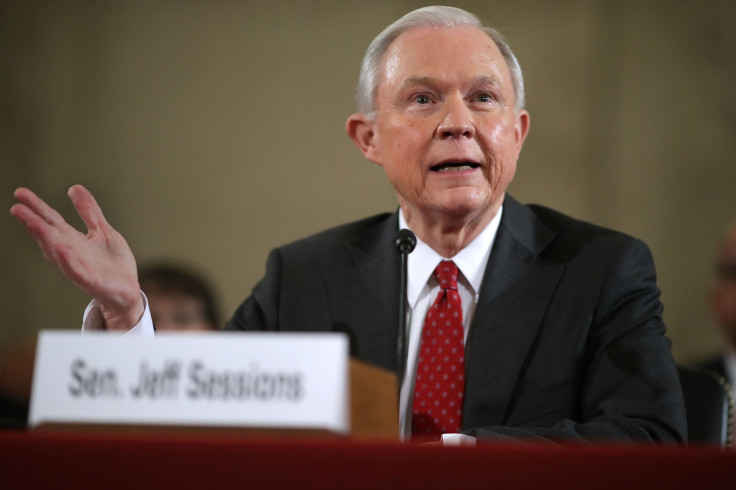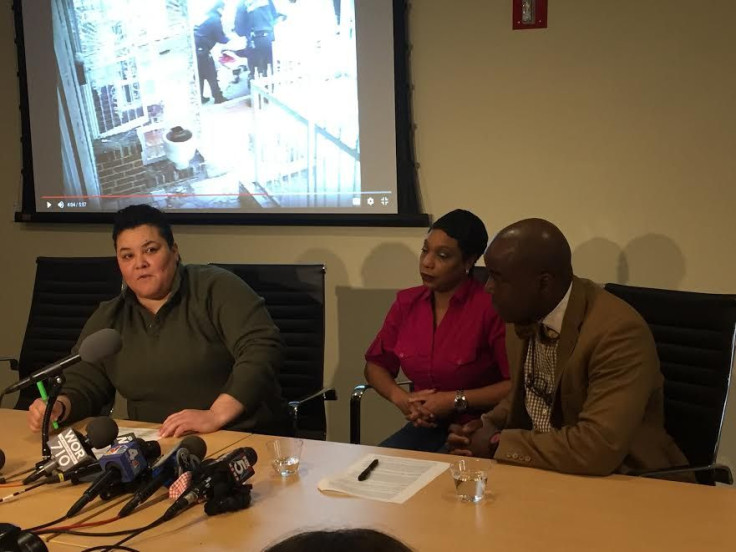Trump Attorney General Update: DOJ Police Investigations, Reforms Could Stop Under Jeff Sessions

Constance Malcolm’s memory of losing her teenage son when police stormed their Bronx home nearly five years ago was still fresh as she sat in a conference room in Midtown New York City Tuesday. She was sitting, staring sideways at raw footage from the fateful afternoon being played on a large projection screen. The video, which showed New York Police Department Officer Richard Haste shortly after he shot 18-year-old Ramarley Graham to death in front of his grandmother and 6-year-old brother, contradicted claims during the NYPD disciplinary trial, which ended last week.
She insisted her son was doing nothing wrong when he was confronted.
“They said he was running; he was selling drugs … none of that were true,” Malcolm said of the Feb. 2, 2012, deadly encounter with the NYPD. “They all murdered my son.”
While the story of a black mother mourning her unarmed child’s death at the hands of police has become a familiar refrain in recent years, the series of Department of Justice probes under the Obama administration into local law enforcement was widely seen as progress in confronting the disturbing trend. But President Donald Trump’s pick for attorney general, Alabama Sen. Jeff Sessions, who is decidedly pro-police stance and has been accused of being racist, could bring a swift end to those types of investigations into alleged brutality that have yielded significant police reforms.
With Trump taking swift measures to seemingly undo many of his predecessor’s accomplishments, Malcolm and some social justice advocates say they have an increasing sense of uncertainty for future police reforms.
“I don’t have faith in the process, it has let Ms. Malcolm down on several occasions,” her attorney Royce Russell said while acknowledging the implications for so “many others” under a Sessions-led DOJ.
Sessions had previously admitted there was bias in policing and made several remarks about his disapproval of Black Lives Matter, a group that has been a driving force in demanding police and social justice reforms.
During an August 2001 hearing of the Senate Judiciary Committee, Sessions said police departments that were repeatedly making traffic and other stops based on race was "just life." Sessions said he did not take issue with it. Years later in 2015, Obama’s DOJ would accuse the police force in Ferguson, Missouri, of the same offense, prompted in part by the events surrounding a white police officer there shooting and killing a black teenager in a national event that many credited with giving birth to the Black Lives Matter social justice movement.

Months later, during another Senate Judiciary Committee hearing, Sessions seemingly remained defiant, saying in part that “it is clear that police officers all over America are concerned” about legal actions taken by the DOJ against police officers and police departments. “I do think it’s a real problem when we have Black Lives Matter making statements that are really radical, that are absolutely false,” he added.
Most recently, during Sessions’ Senate confirmation hearing for attorney general last week, New Jersey Sen. Cory Booker warned that based on his records, the Alabama senator would not protect people of color, among other minority groups.
In contrast to what has been envisioned for Sessions in Trump’s cabinet, both of Obama’s attorneys general launched multiple DOJ investigations prompted by the series of events that led to the police-involved deaths of Freddie Gray, Tamir Rice, Mike Brown and Eric Garner — names that have become nearly synonymous with recent instances of alleged police brutality.
The DOJ probe into the death of Garner, an unarmed black man who was choked to death by an NYPD police officer for selling loose, untaxed cigarettes on the street in 2014, was still open under outgoing Attorney General Loretta Lynch. His family said their hope for closure and a positive resolution in the case has faded. After the DOJ released a 164-page report a week before Trump’s inauguration that found the Chicago police department used excessive force and violated the constitutional rights of minorities, Garner’s oldest daughter tweeted, “No matter AG Sessions or AG Lynch white supremacy will be vigorously defended regardless of findings of systemic abuses. #factsonly.”
No matter AG Sessions or AG Lynch white supremacy will be vigorously defended regardless of findings of systemic abuses. #factsonly
— officialERICA GARNER (@es_snipes) January 13, 2017
Earlier this month, the DOJ also released a 227-page consent decree demanding reform for Baltimore's policing methods, which was tracked for more than a year following the 2015 death of Freddie Gray. Gray, 25, died under questionable circumstances following his arrest that left him with a broken spine while being transported in a police van.
Not everybody is dubious when it comes to Session, however. Law enforcement officials were hailing Trump's pick as the nation's top cop. The head of one of the many police groups that endorsed Trump’s presidency expressed confidence in his ability to do the job fairly.
The Fraternal Order of Police said it was “comfortable” with Sessions as attorney general, group President Church Canterbury told International Business Times. “There is nothing in his records that shows he will not enforce the laws in the United States,” he added.
A pro-Trump group urging Sessions' confirmation as the next attorney general has even gone so far as to call him "a civil rights champion" in a new TV ad that began running this week.
Adding to the worries of Sessions' opponents was the fact that Trump has taken steps to roll back many of the Obama administration's key measures, including the national healthcare law known as Obamacare and an international trade deal. Sessions as attorney general could mean similar steps may be taken to undo what some see as progress in confronting systemic racism by police against minorities.
Malcolm said she had lost faith in the system entirely, a feeling that was compounded by the nomination of Sessions.
“For Trump to put this man in office, we as Black people … Blacks and Latinos are not going to get our answers anymore. We shouldn’t settle for that,” she said. “What is this country’s coming to when you can’t even get a simple answer when your loved ones are killed?”
© Copyright IBTimes 2024. All rights reserved.





















